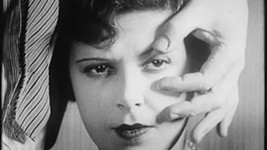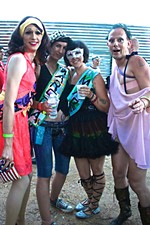Reborn: Journals & Notebooks, 1947-1963
What these early diaries give is a sense of the author and cultural analyst in the process of becoming the international touchstone known as Susan Sontag
Reviewed by Marjorie Baumgarten, Fri., Jan. 30, 2009

Reborn: Journals & Notebooks, 1947-1963
by Susan Sontag, edited by David RieffFarrar, Straus & Giroux, 318 pp., $25
"In the journal I do not just express myself more openly than I could do to any person; I create myself." Indeed, what we discover in these selections from Susan Sontag's early diaries and journals is a sense of the author and cultural analyst in the process of becoming the international touchstone known as Susan Sontag. Reborn is edited by Sontag's son and is the first of three planned posthumous collections of her private writings. This first collection begins during her adolescence and ends just prior to the release of her first book and the beginning of her worldwide renown.
The insights we gain into the writer's intellectual and emotional development defy expectations and thwart curiosity, while at the same time provoking further rumination and perspective. The entries are frequently revealing yet more often notable for what they leave out. Precociousness was always a given with Sontag, who began college at the age of 16, and the most consistent aspect of the journals is their lists of books to read, acquire, and reread and the voracious record of plays and concerts attended. Yet, of her marriage at the age of 18 following 10 days of courtship, there is nothing but a mere notation: "I am engaged to Phillip Rieff." Nothing about the marriage and the birth of her son is in evidence until she begins dissecting the problems in her marriage. "The whole point of marriage is repetition. The best it aims for is the creation of strong, mutual dependencies."
Surprising are Sontag's numerous expressions of self-doubt and self-criticism. She discovers her intellect to be fickle and subject to the sway of others' opinions. "The mind is a whore," she writes at one point. She acknowledges her internal "will to failure" in which she devalues her successes. Recurring frequently among lists of items for self-improvement is the startling reminder to bathe daily – all the more intriguing as Sontag's physical allure was almost as compelling as her intellectual avidity. However, the most edifying aspect of this collection is Sontag's open discussion of her bisexuality, beginning with lesbian relationships in her teens and throughout her adult life. Never discussed openly in her writing and much whispered about during her last years and after her death, Sontag's lesbian identity is revealed here as central to her being. It certainly casts such works as her seminal essay "Notes on Camp" in new light.












